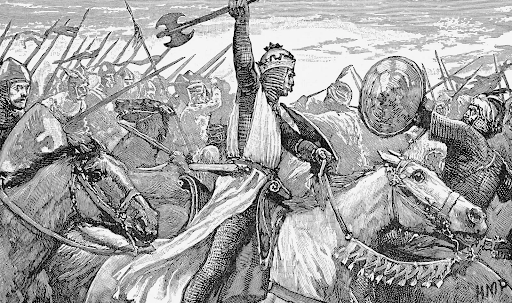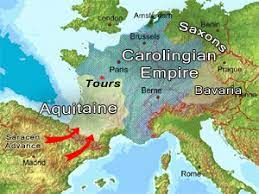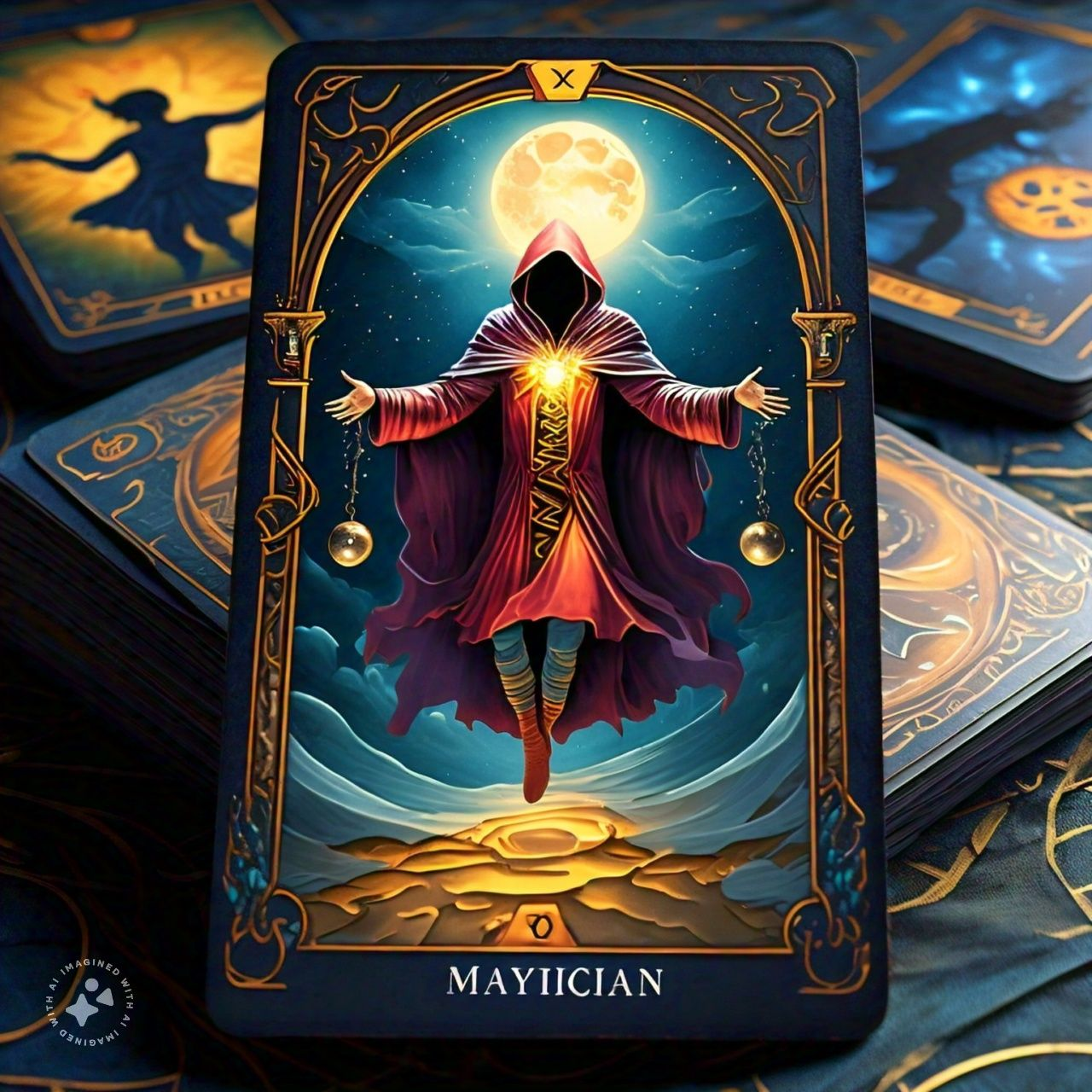
In the annals of European history, certain pivotal moments have emerged as turning points that shaped the course of the continent’s destiny. The Battle of Tours, fought in 732 AD, stands as one of these seminal incidents that not only altered the course of history but also preserved the unique cultural tapestry of Europe. Often referred to as the “the Battle that Saved Europe,” this clash between two vastly different civilizations marked the beginning of an end for the rapid expansion of the Islamic empire into Western Europe.
The Landscape of Conquest; Clash of Ideologies and Ambitions
The backdrop of the Battle of Tours is a continent in flux. The mighty Islamic Caliphate, under the leadership of the Umayyad Caliphate’s commander-in-chief, Abd al-Rahman, was in the midst of an ambitious campaign of conquest that had swept across the Middle East, North Africa, and Spain. Buoyed by victories, the Islamic forces sought to continue their expansion into the heart of the Frankish kingdom, present-day France.
Leadership in Crisis; Charles Martel and the Frankish Defense
Charles Martel, a powerful Frankish leader often referred to as the “Hammer of the Franks,” was tasked with halting this seemingly inexorable advance. As the Frankish leader, he bore the responsibility not only of his people but also of safeguarding the broader Western Christian civilization. The clash of ideologies, cultures, and military tactics was about to culminate on the fields of Tours.
The Battle Unfolds; Clash of Strategies and Willpower
In October 732, the two armies met near the small town of Tours in central France. The Islamic forces, battle-hardened and boasting an impressive cavalry, clashed with the Franks led by Charles Martel. The battle that ensued was not merely a contest of military might but a clash of worldviews, religious beliefs, and political ambitions.

The Franks’ Stand; Discipline and Fortitude Amidst Chaos
Charles Martel’s forces, comprising a mix of heavy infantry and the battle-hardened warriors. Faced the Islamic cavalry’s onslaught with disciplined formations and strategic maneuvering. The Franks, shielded in their tightly knit ranks, were able to withstand the repeated charges of the Islamic horsemen, whose ferocity was renowned across the known world. The battle raged for days, with neither side gaining a decisive advantage.
A Pivotal Moment; Charles Martel’s Decisive Counterattack
However, it was during one of the Islamic cavalry charges that the tide of battle shifted. A moment of opportunity emerged as the Frankish infantry held their ground against the charging horsemen. Taking advantage of a gap in the Islamic lines, Charles Martel launched a counterattack that struck at the heart of the Islamic army. The cavalry’s mobility became a liability in the face of the Franks’ disciplined infantry formations.
Legacy and Significance; Shaping the Course of Europe
The result was a stunning victory for the Franks. The Islamic forces, unable to break through the Frankish lines, were forced to retreat. This battle not only halted the Islamic advance but also marked the turning point in their European expansion. The Islamic empire’s momentum was broken, and their ambitions of conquering the Western Europe were forever quashed.
Resilience, Leadership, and Historical Echoes
The Battle of Tours holds enduring significance for Europe. It not only preserved the distinct cultural identities of the West but also prevented a dramatic alteration of the continent’s political and religious landscape. Charles Martel’s triumph would have lasting implications, setting the stage for the growth and eventual consolidation of European nation-states.
In conclusion, the Battle of Tours remains a vivid testament to the resilience of Western civilization. This pivotal encounter between Charles Martel’s Franks and the Islamic forces altered the course of the history. Ensuring the preservation of Europe’s cultural diversity and religious heritage. As we reflect on this historic moment, we are reminded that the past continues to resonate in the present. Above all shaping our understanding of the world and the complexities of human interaction.





